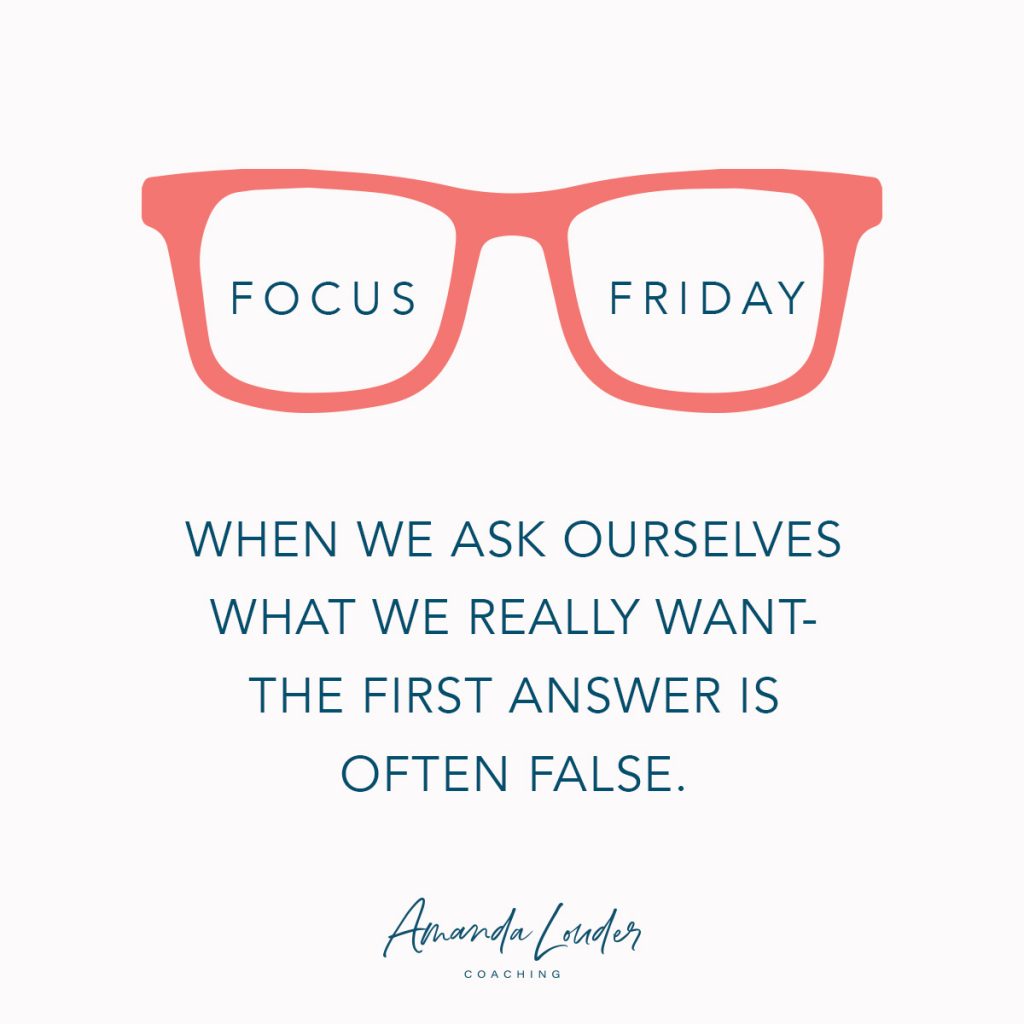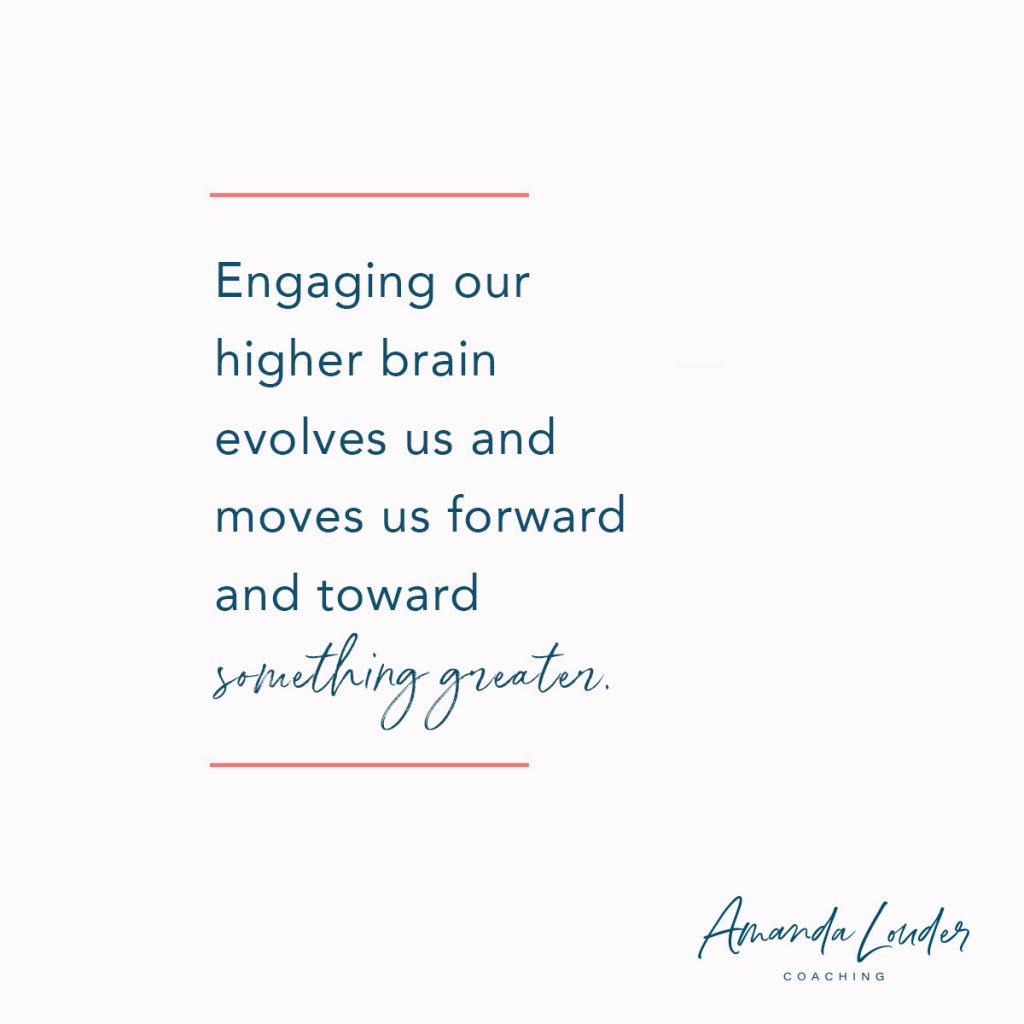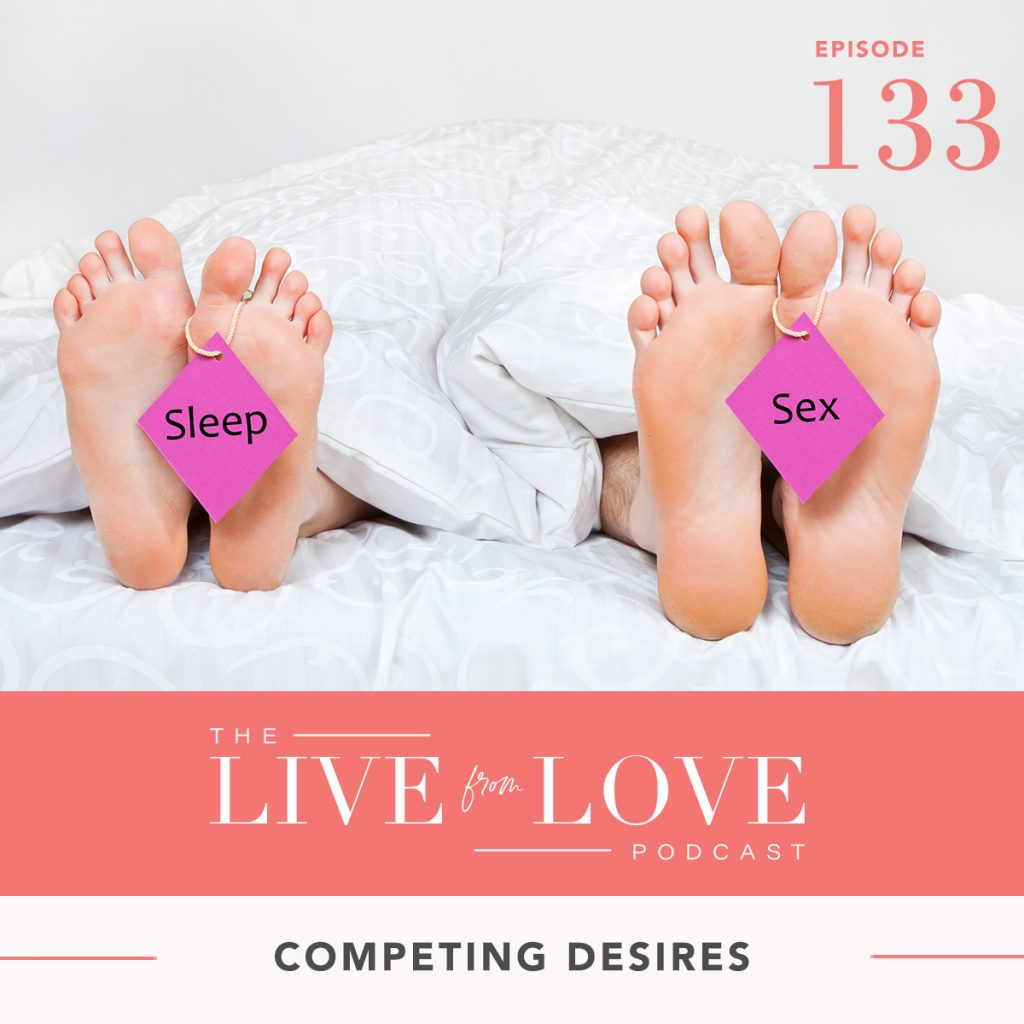
Does your spouse think he is not a priority in your life? Could he be right? Today I will dive into true desire and false desire and how to manage your brain around them. The answer lies within the ability to use your higher brain above your lower brain and how the work you do can actually retrain your brain. You can actually learn how to stay on your plan – and not eat the ice cream. You can give up a few minutes of sleep to build a better relationship with your spouse and so much more this week!




Show Notes:
Follow Amanda on Facebook and Instagram.
Join Amanda’s Private Facebook Group.
References for this episode:
Show Summary:
What is desire – it’s a longing for something. A wanting. It’s owning your wanting. Desires are important. They are the map to our best life. But often what we think are our truest desires are actually not. When we ask ourselves what we want, the first answer is often false. It’s those immediate false answers that get in the way of long-term happiness. That first answer, what we want in the moment, isn’t always in our best interest.
Because when we ask ourselves what we want….the answer, especially as women, isn’t sex.
So let’s talk about immediate desires versus long term desires.
Immediate desires : We have a lot of immediate desires. Urges to feel certain things and do certain things in the moment. These desires feel important. Necessary. But, they aren’t always helpful. Often giving in to the desires, as important as they feel, doesn’t actually eliminate or satiate the desire. And they often happen at the detriment of what we want for ourselves long term.
I want you to think about the last time you went into Target for just one thing and walked out with a basket full of things you just HAD to have when you saw it. You had an urge to buy these things. But what was the urge actually for? The DESIRE that you felt was actually a desire to feel a certain way. What was that feeling? Momentary happiness? But what happened later? Did you still feel that happiness when you looked at those things a week later? A month later when you saw that item you had to have? Probably not. You probably felt indifference, guilt, maybe even shame. What did you want for yourself long term? A house full of stuff you don’t really want or need? Money in your bank account? Less debt?
How many times have you told yourself that you want to eat healthy and lose some weight, but then there was ice cream, chocolate cake, or halloween candy? The desire to eat the sugar is so strong and maybe even the first bite tastes so good. But have you noticed, the more you eat the taste just isn’t as good. Yet you tend to keep eating anyway? Why do we do that? Because the momentary feeling of happiness feels so good that we sacrifice what we want in the long run for it.
Ok one more example. You’ve got a million things that need to get done but instead you watch an episode (or five) of your favorite show instead. Sound familiar. Yeah, me neither.
One of the biggest obstacles I talk to women about is their desire for sleep more than anything else. As women, we have so much on our plates – jobs, the house, the kids, by the end of the day we are just exhausted. And the last thing on our minds is sex. Our husband accuses us of not making them a priority, which is probably partially true. And I get it…
So how do we balance our desires for sleep AND create a good relationship and sexual relationship with our spouse. They seem to be at opposite ends of a spectrum and directly compete with each other.
First is recognizing what is happening in our brain and gaining awareness around it. Awareness is always the first step.
We’ve talked about it before, but for those of you who are new let’s go over how our brain works.
Of course the brain is complicated and we don’t get too technical here but we mainly talk about two areas of the brain – the lower brain and the higher brain. The lower brains job is survival. It was designed to keep you alive at all costs. And it does this by offering you thoughts in 3 ways
- Avoid pain – pain means death and your brain doesn’t know the difference between physical pain and emotional pain.
- Seek pleasure – your brain wants to feel good. So it’s going to seek immediate pleasure. It wants that hit. And it’s going to look for the easiest way to get. And speaking of easy…
- Conserve energy – your brain wants you to have energy to run away in case there is danger, so it wants you to conserve energy.
So knowing that this is how your lower brain works, it makes sense you want the stuff from Target, the ice cream, to watch Netflix, and to sleep. But what it’s costing you is true and long term happiness. To ensure long-term happiness and results, you have to be willing to give up what you want in the now, the short term gratification, to get what you want in the long term. To get the reward of having a great sexual relationship, we have to give up the short term pleasures that get in the way of that.
So how do we do this? We do this by engaging our higher brain, the one that helps us overcome the lower brain, the natural man, to create the life we actually want. By engaging this higher brain it evolves us and moves us forward and toward something greater. It moves us toward what we want. But engaging the higher brain is not easy. It’s hard. It’s very hard. Our lower brain fights us tooth and nail to NOT engage the higher brain, because it takes work and effort and it’s unknown, and scary. And often engaging that higher brain does not offer us immediate rewards. So even when we do engage it, we often slip back into that lower brain when the going gets tough. It’s a constant battle. But a battle that you can win if you are willing to. And this is the work we do in coaching, helping you overcome that lower brain, engage the higher brain, and keep it engaged.
So when we feel the urge to buy something, eat something, watch something, or sleep, we need to:
- Recognize what is happening. Remember awareness is the key. When we can become aware of ourselves and what is going on we are more likely to start making changes.
- We need to not resist our lower brain. We don’t want to make this a fight with ourselves. We need to acknowledge what we are thinking and feeling and not push it away. You don’t need to tell yourself that you are bad for feeling this way. It makes total sense. Our brain is just doing it’s job. So acknowledge it, but just let it be. When we resist it, the urge just grows. So we just sit with it. And then…we engage our higher brain.
- To engage my higher brain, I like to ask myself questions. So here are some great questions to ask yourself
- If I do this, how am I going to feel in the moment?
- How am I going to feel a day from now? A week from now? A month from now?
- Then, I ask myself the opposite questions.
- If I don’t do this, how am I going to feel in the moment?
- How am I going to feel tomorrow? A week from now? A month from now?
So let’s ask ourselves these questions based on the examples I used before
You see something at Target that you want to buy.
- If I buy this, how am I going to feel in the moment? Excited? Happy?
- How am I going to feel a day from now? Regret?
- A week from now? Guilty?
- A month from now? Indifference?
- If I don’t buy this how am I going to feel in the moment? Disappointed?
- How am I going to feel a day from now? Sad
- A week from now? I probably will have forgotten about it.
How about eating a piece of cake?
- If I eat this how am I going to feel in the moment? Maybe with the first bite, Satisfied, but subsequent bites, disappointed?
- How about a day from now? Frustrated with myself
- A week from now? The scale has gone up, and I’m feeling shame.
- If I don’t eat this how am I going to feel? Disappointed? Proud?
- Tomorrow? Happy
- A week? Successful
Let’s say I feel like I want sleep instead of sex.
- If I sleep, how am I going to feel in the moment? Rested
- A day from now? Guilty?
- A week from now? Worried?
- If I don’t sleep right now and I choose to have sex, how am I going to feel in the moment? Now, a lot of this is how you approach sex. I don’t want you to do be doing it just because your husband wants it. But if you fully choose to do this then I would hope you feel close, connected, pleasure, enjoyment.
- A day from now, you might be physically tired but I think you would be proud of yourself. You’d feel more loving and connected with your spouse.
- A week from now? Things get even better!
When you engage your higher brain and make choices based on long-term results instead of short term feelings, you retrain your brain. You aren’t thinking about what feels good in the moment, but really engaging the higher brain, being more rational about what is going to be best for you in the long run. This will solve things 90% of the time. But if not, there’s one last question that I really want you to ask yourself.
What do I really want here? What do I want for myself and my marriage in the long run? What feeling do I want to create? What result do I want to create? How long will it satisfy me for?
Immediate desires are intense and strong and they can get out of control if we don’t exercise our brain power. Allow those immediate desires, understand them, but don’t act on them. Doing this puts you in the power of your own life. Your brain is wired for survival – but it doesn’t serve you in what you want for your life. When you are living a life that isn’t your true desires, where you are living in what feels good in the moment, it’s painful and exhausting.
But when you tap into your true desires and let go of all of the false desires, you are left with an aching and a wanting that is truly for what you want. This aching and wanting drives you to expand yourself and helps you grow into who you want to be. True desires fuel you with energy and motivation to go after what you truly want. And again, this is what we do in coaching. Helping you figure this out so you can go after what you truly want.
If you want to really tap into those higher desires and learn how to create a better intimate relationship with your spouse, please come join me in my Embrace You! Group Coaching Program. You can learn all about it and sign up at amandalouder.com/groups



